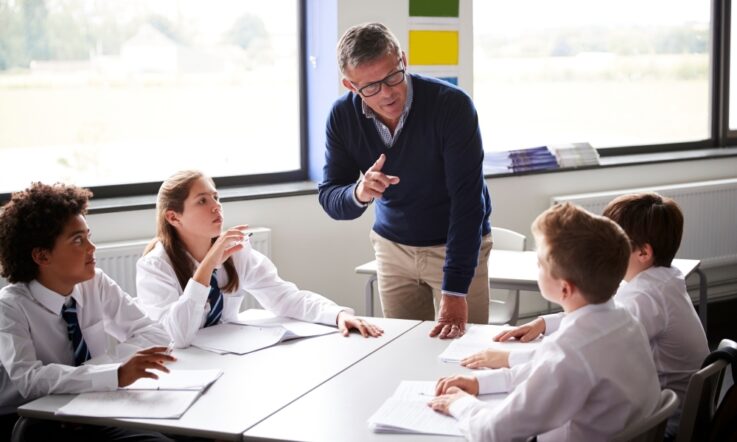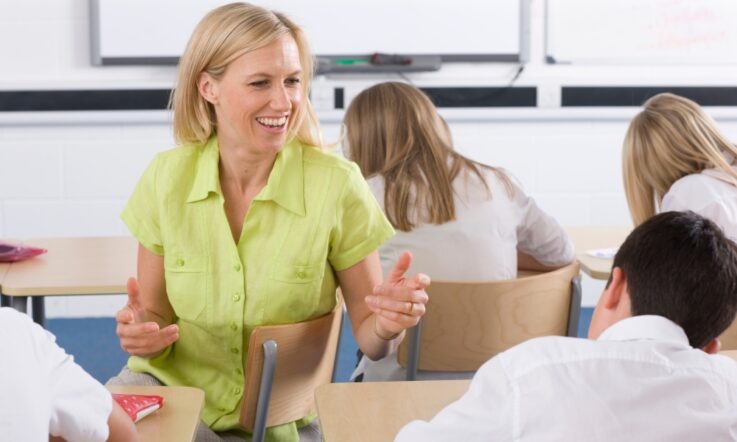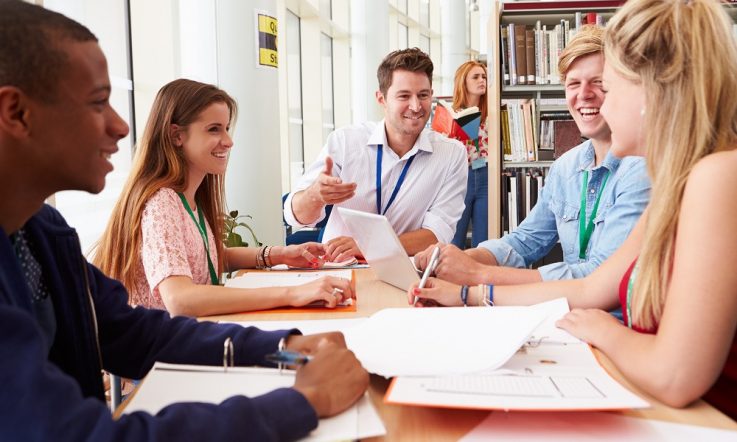In his Teacher article Establishing Professional Learning Communities that work, Melbourne principal Dr Lars Andersson shared details of the planning and preparation phase at Richmond High School. In this follow-up he discusses the implementation experience, and the impact on practice and student outcomes.
We officially introduced Professional Learning Communities (PLCs) at our school in 2022 and our implementation experience was very positive. Our goal was – and continues to be – to improve learning outcomes for students.
Our aim is to do this by creating a sustainable, collective learning process in which all teachers engage deeply in an inquiry cycle, identifying patterns in the data, prioritising with colleagues, and implementing strategies to improve learning. Such strategies are then monitored and evaluated as the cycle continues. Over time, teachers continue to refine their teaching practice through this ongoing cycle of inquiry, learning and growth.
This is an alternative to traditional forms of professional learning for teachers, which have often relied on presenters advising teachers to adopt a new practice that is not necessarily anchored in the teacher’s real context. By comparison, the professional learning that happens in our PLC meetings (and between meetings) emerges directly out of the lived reality of students and teachers, as PLC members review evidence of learning and strategise about how to make improvements for a particular band of learners.
Even when some of our PLCs struggled at times to identify a ‘crumb’, or focus, for their group of students, teachers felt that the nature of this collaboration was fundamentally different from other forms of professional learning or collaborative practice that they had previously experienced. By the start of Term 3, 2022, teacher representatives on our School Improvement Team described PLCs as ‘excellent’, ‘exciting’ and ‘very rewarding’.
Partly, these teacher responses to their experiences in PLCs may have been shaped by a higher level of motivation, compared to their participation in other forms of professional learning. Professor Helen Timperley has made a similar point in discussing evidence of what forms of learning work best for teachers: ‘The best evidence synthesis identified that the more student achievement improved, the more motivated the teachers became…Even small changes in students’ responses to new approaches to teaching can improve teacher motivation,’ (Timperley 2011). The academic identifies ‘ongoing cycles of inquiry and building knowledge’ as the core of this form of learning, with teachers over time developing ‘the adaptive expertise required to retrieve, organise and apply professional knowledge’ to move students forward in their learning.
This resonates with our lived experience at RHS, as we have used the inquiry cycle at the heart of the PLC format to drive ongoing reflection and learning for teachers.
An anonymous feedback survey we ran with teachers in Term 4 of 2022 asked if the learning in the PLCs had had an impact on the learning of students – 91% of teachers responded positively, with typical comments being:
Students have seen a particular growth from a language and literacy point of view in Drama
We have seen an improvement in drawing skills and confidence in our learners as a direct result of PLC
After analysing the data, we saw an improvement in the skills focused on during the PLC process.
Responding to worded problems in year 7 maths, students have gained skills in identifying relevant information and demonstrated measurable improvement in solving worded problems.
At the same time, 2 teachers expressed reservations, writing that ‘there has not been a direct impact yet’ and that ‘PLCs have not been overly successful so far’, respectively. These comments prompted discussions with PLC facilitators and PLC members around how to make the meetings effective for all teachers involved.
Further observations and reflections suggested that the evaluate and diagnose part of the PLC Inquiry Cycle was often the hardest part, as it relied heavily on a shared understanding of the continuum of skills and knowledge, and clear sense of what success would look like.
It also became clear to us that our training of the PLC facilitators and the PLC members would be the most crucial element in unlocking the potential of PLCs at our school.
DuFour, DuFour, Eaker and Many suggest in their guide Learning by Doing: A Handbook for Professional Learning Communities at Work (2013) that ‘principals will not develop…high-performing PLCs unless they develop the knowledge and skills of key staff members to lead the collaborative work essential to PLCs.’ As part of our ongoing training of PLC facilitators, we purchased copies of this book for each of them to read, with set readings for each training session. Training sessions happen twice each term.
Now, in 2023, we are continuing our implementation of PLCs at RHS with renewed urgency and commitment. Teachers in PLCs have an increasingly clear, shared understanding of what the inquiry cycle looks like, and a shared sense of the progression of learning in each subject area.
Higher than ever NAPLAN (National Assessment Program – Literacy and Numeracy) results in 2022, combined with excellent VCE (Victorian Certificate of Education) growth and achievement data give us further motivation to continue learning through PLCs.
One of the teacher comments in our anonymous survey in December 2022 still resonates with me: ‘I think PLCs have enabled me to target areas for improvement in students, and through the interventions developed in my PLC team we have seen the impacts on those target areas’.
As our shared learning in our PLCs becomes increasingly precise, evidence-driven and sophisticated, the impact of such interventions will continue to grow and expand.
References
DuFour, R., DuFour, R., Eaker, R., Many, T. (2013). Learning by Doing: A Handbook for Professional Learning Communities at Work. Solution Tree Press.
Sloper, C. & Grift, G. (2021) Collaborative Teams that Work: The Definitive Guide to Cycles of Learning in a PLC. Solution Tree Press.
Timperley, H. (2011). Realizing the Power of Professional Learning. Open University Press.
After introducing Professional Learning Communities at Richmond High School in 2022, Principal Lars Andersson says the leadership team continue to seek feedback and reflection from teachers on the impact and any success or issues.
As a school leader, are you regularly seeking feedback from staff about their experience with new initiatives or programs? How does this inform your future decisions?



